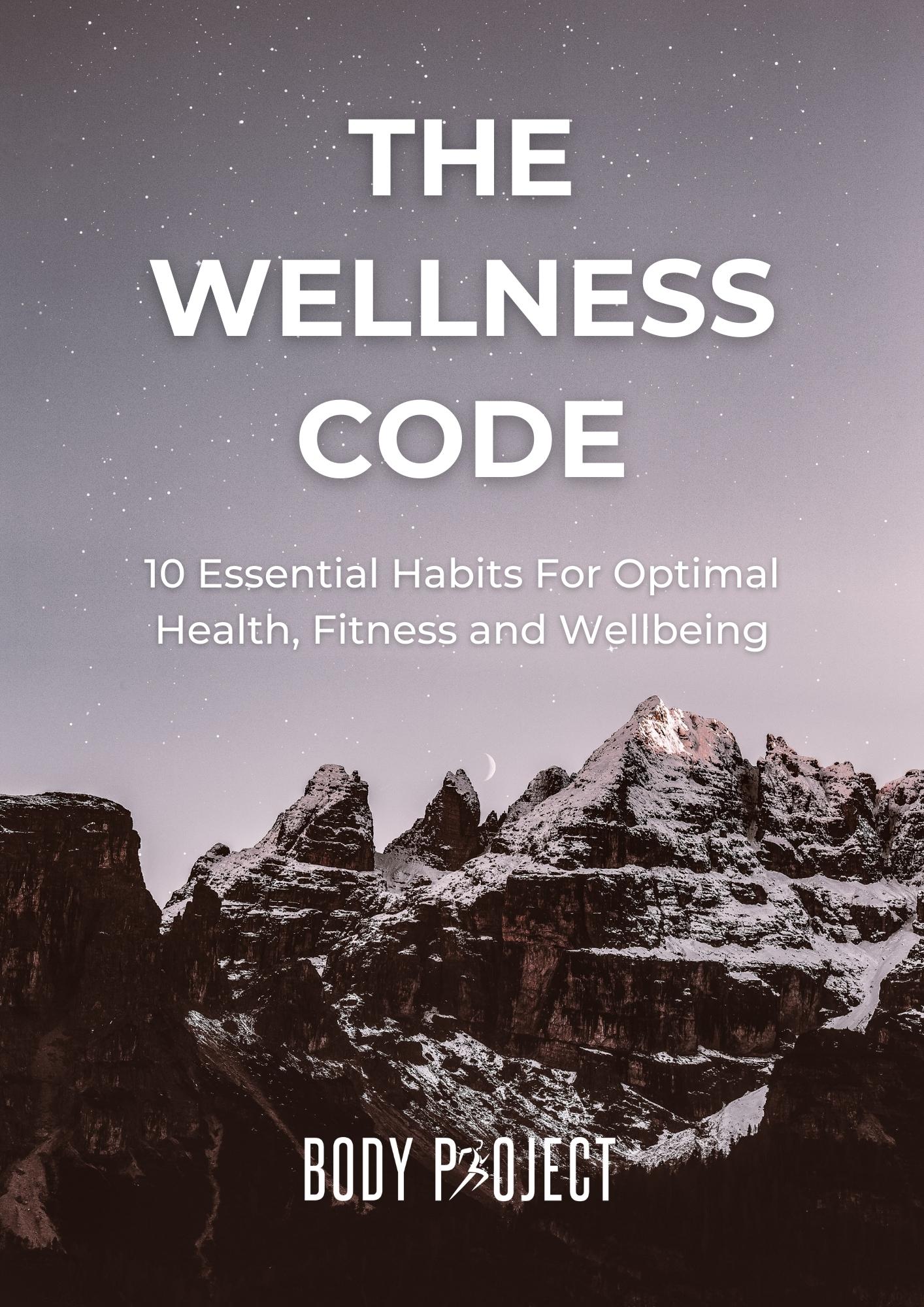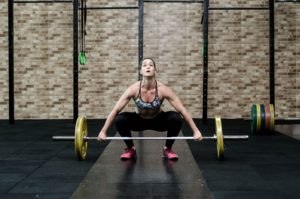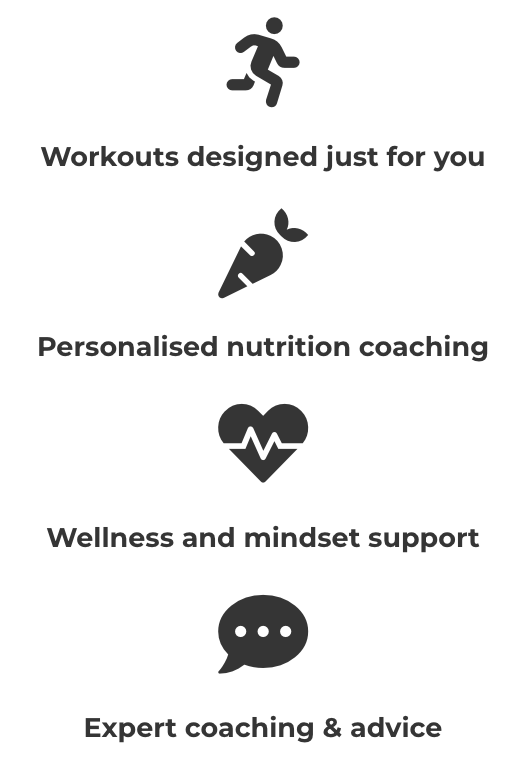Sign Up For Special Offers & Exclusive Content
For weight loss you need to ensure you’re in a sufficient and sustainable calorie deficit.
To build healthy muscle tissue you need to ensure you’re getting enough calories and protein.
For athletic performance you need to ensure you’re getting the right amount and types of carbs at the right times.
The Importance Of Nutrition Tracking
Tracking your food intake will give you a clear picture of what’s going into your body. That means you’ll be able to make better choices and see the best results from your workouts.
Even if you don’t have strict body composition or competitive goals, you’re still a human being. It’s worth learning how to fuel your body so you can get the best out of it, feel the best about it, and make it last as long as possible.
I understand that nutrition tracking can seem complicated or confusing. Here's a simple, effective approach:
How To Track Your Nutrition
By far the best tool I’ve found for nutrition tracking is MyFitnessPal. You can use the website or download the mobile app. It’s free, easy to use, and has plenty of useful features. MyFitnessPal is pretty much the industry standard and is used by most fitness professionals and athletes I know.
Expert Tips On How To Use MyFitnessPal
- Create an account, input your metrics (weight, height, age etc), and your goals: lose/maintain/gain weight. MyFitnessPal uses this information to estimate a daily calorie goal for you, and it’ll also provide some default macronutrient goals to aim for. Macronutrients are carbohydrates, fats, and proteins. You’ll need an appropriate balance of these to see the results you’re looking for.
- I’d strongly recommend having a professional calculate your calorie and macronutrient goals as they’ll be able to take your individuality into account, plus tweak your targets over time based on your ongoing progress. Alternatively you can calculate your own calorie and macronutrient goals. Either way, it's easy to set bespoke targets in the app.
- Include alcohol when you track your nutrition. At 7cals per gram, it can add to your overall intake substantially. The effects of alcohol in turn impact your eating behaviours and food choices, making it an even more valuable factor to consider.
- MyFitnessPal allows you to input information on your exercise activity. If your aim is to lose weight, I’d suggest that you don’t use this feature. It will increase your calorie allowance for the day which could affect how fast you lose weight. Simply view any calories burned through exercise as a bonus. If you’re trying to gain muscle or your focus is athletic performance then this feature is more relevant for you, although your activity level should already have been taken into account when your calorie targets were originally calculated.
How To Eat Intuitively
The most ideal way to track your food intake would be to stick to “real” foods (ie meat, veg, grains, fruit etc), measuring out quantities by eye. Precision Nutrition has a great guide on how to do this, or you could even follow the NHS Eatwell Guide framework. There’s a caveat though - intuitive eating requires a good understanding of nutrition, plus enough of a connection with your body and clarity on its day-to-day and seasonal needs. The best way to learn is to track your food for at least a little while using a tool like the one mentioned above. This process of trial and error will also help you experience what your ideal diet would look like so you can make informed choices.
How Long To Track Your Nutrition Intake
Whatever your goal, here's a good general guide:
- Track your intake in detail for a good few weeks initially. This will allow you to collect enough data to consider your findings reliable, and also helps you to start building a frame of reference for what your ideal diet will look like. Over time you’ll become more able to eat intuitively without relying on food tracking apps to know you’ve given your body everything it needs: no more, no less.
- Track your intake for every day of the week. A common mistake is to only track on weekdays and end up with absolutely no idea what you’ve eaten on weekends. For example, an increased calorie intake on the weekend could completely ruin your weekday efforts to maintain a healthy calorie deficit.
- After that initial period, track for one week every few weeks just to make sure you’re still on target. It’s extremely important that even when you’re not tracking you’re making a conscious effort to continue making the best nutrition decisions possible. It can be all too easy to fall out of good habits when there’s no data on record to keep you accountable!
- Once you achieve your goal, go back to tracking consistently for a short period so you can work out how to maintain your weight loss/muscle gain/recover from your sporting competition. You’ll benefit from doing this during any transitional period, be that after achieving a weight loss goal, moving home, or entering menopause. Know that nothing ever stays the same and your needs are always changing.
How To Analyse Your Nutrition Data
- You can monitor your intake daily if you like, but I find it more useful to review one week’s worth of data at a time. This can help a lot of people avoid obsessing over food.
- Assess how many calories you eat per day, as well as overall each week. Are you over-eating or under-eating? If so, how often?
- Check out how well your macronutrient intake aligns with your goals.
- Start to notice trends: days of the week where you’re more/less successful at hitting your targets, and try to understand why.
- Have a play around in the app and learn about the contents of the different foods you eat.
- Identify the meals that provide you with the best possible calorie and macro balance so you can make them more often.
- Identify the foods or meals that are hindering your progress, and aim to reduce how often you eat them.
- If you’ve made notes in the app you can also assess how different foods make you feel and affect your performance.
- Always consider your training in line with your nutrition - how does your eating affect your progress towards your goals?
- Start to think of small changes you could make to better fit your needs whilst still enjoying the foods you like.
How To Make Nutrition Tracking Easy
Invariably, when I ask someone to track their food intake they come up against problems. Our ability to overcome obstacles is a key indicator of success… and there’s no falling at the first hurdle with me, I’m here for you!
Let's discuss some of the more common issues people encounter when it comes to food tracking:
Accuracy
Example: “Sometimes it’s hard to accurately input my food data, particularly when I’ve eaten in a restaurant or cooked at home. This makes me wonder if it’s worth doing at all.”
- Actually, even food labels can be up to 25% inaccurate, meaning that almost everything you put into the app is an estimate! MyFitnessPal and similar apps are still the best tool we have for dietary tracking.
- Don’t worry about getting everything perfect - that’s not possible. If you have to guess, then guess! If you’re making the effort to pay attention to food labels and weigh ingredients where possible, you’ll build a frame of reference over time, improving your accuracy.
You’re never going to achieve total accuracy… and that’s okay! It’s better to have rough data than none at all.
Difficulty
Example: “Remembering and writing everything down feels like a big chore and I often forget to do it.”
- My best advice here would be to attach your new habit of tracking your food to an existing one. For example, you might like to regularly update MyFitnessPal at the end of the day, or when you wash up after a meal.
- Always keep your priorities in mind. Remind yourself why you’re tracking, why that’s important, and what you stand to gain from it.
- Rather than stressing about how much of a chore it is, train your brain to focus on the positives. Looking through the data you’ve collected and drawing conclusions can be great fun, and remember to congratulate yourself on even the tiniest bits of progress.
Nutrition tracking can be easy, feel important, and stay fun if you focus on building habits, keeping your priorities front of mind, and enjoying the learning process.
Restrictiveness
Example: “Food tracking makes me obsess over my eating and I often try to cheat the process by eating as little as possible or doing extreme things to reach my goal.”
- If you have an eating disorder or a history of disordered eating, nutrition tracking could trigger issues for you. On the other hand, it could empower you with the information you need to fuel your body rather than deprive it. If you do have a history of disordered eating, speak to a qualified therapist and start healing, my friend.
- If you’ve calculated your nutrition needs accurately and realistically, then you should never feel deprived of food or particularly restricted.
- Know that it takes a really long time to change your eating habits, so take things day by day. I absolutely do NOT expect my clients to instantly ditch their existing eating habits in favour of new ones. It’s all about making little tweaks over time to improve your diet.
- If the process feels too intense, you could simply track your food and leave the data analysis up to a professional, such as a qualified training coach or nutritionist. They’ll be able to go over your results periodically and suggest improvements you might like to make to your diet.
It all comes down to intention and mindset: are you ready, willing, and able to be kind to yourself and your body, aim to give it what it needs, and not beat yourself up when you make mistakes?
Shame
Example: “I couldn't bear the thought of first having to admit what I eat by recording it on an app, let alone having to look back at that information without feeling terrible.”
- Shame and guilt are powerful negative emotions which often cause us to get stuck. It can help to remind yourself that nobody is perfect, and we all must start somewhere. Try to be as objective as you can when tracking and analysing nutrition data in order to stay focused on solutions, instead of problems.
- It's likely that others wouldn't dream of judging you as harshly as you might think, or as you may internally judge yourself. You're worthy of healthy self-confidence regardless of your weight, appearance, eating behaviours etc. It can be really challenging to go through the type of introspection and personal growth necessary to make long term nutrition changes, so be gentle with yourself.
Search Posts
Free Download
Popular Posts
Discover Online PT
Read More Helpful Articles
Subscribe For New Post Updates
Receive new posts, special offers, discounts, plus exclusive content that we only send out via email.
Don't miss out!







